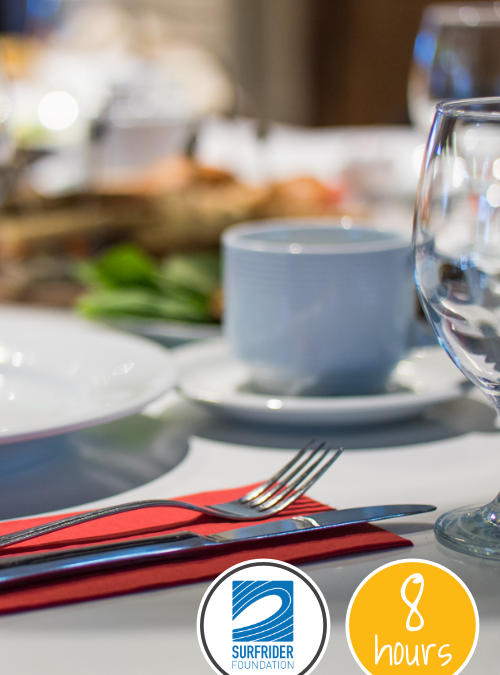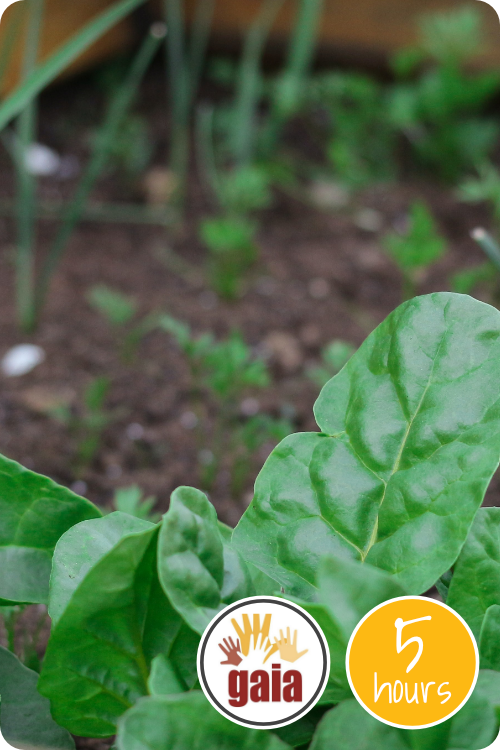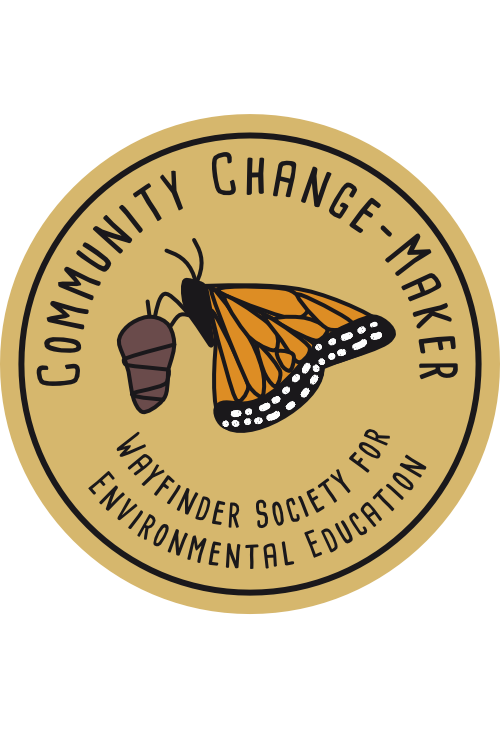
Photo credit: Burak K
Your mission
Help a local restaurant cut down on single-use plastics.
Time Commitment: 8 Hours
Range of Impact: Community
This Action was created in partnership with Surfrider Foundation.

Why this Action is impactful
Restaurants and food establishments use immense amounts of single-use plastic straws, utensils, containers, bags, and containers. But many restaurants are replacing disposables with reusables to save money and reduce waste. Surfrider Foundation’s Ocean Friendly Restaurant program recognizes restaurants that are leading the way. Help spread the word about this incredible program by telling your favorite restaurant about it.
What to know before getting started
Surfrider Foundation’s Ocean Friendly Restaurants program is a certification provided to any restaurant that follows certain steps for reducing plastic waste. The mandatory criteria are:
- Only reusable foodware is used for onsite dining.
- Paper straws are provided only upon request.
- No expanded polystyrene use (aka Styrofoam).
- No plastic bags are used for takeout or to-go orders.
- Single-use utensils, straws, condiments, and other accessory items are provided only upon request.
- Beverages are not sold in plastic bottles.
- Proper recycling practices are followed.
- Plus 3 additional elective criteria listed on the website.
What to do
- Think of a local restaurant you’re familiar with that you’d like to contact about reducing their single-use plastics. Maybe it’s one of your favorite places to eat or one that you think might be interested in reducing plastic waste.
- Get in touch with the primary decision-maker at the restaurant, for example the manager or owner. Ask if you can speak with them about a concern that you have (their use of single-use plastics) and an opportunity that you’d like to inform them about. Arrange a meeting date and time.
- Print out the information sheet and meeting confirmation form.
- During your meeting with the restaurant manager or owner use the information sheet to educate them about the problems with single-use plastics and the health and financial benefits of using reusables. Let them keep the information sheet to reference later. Ask them if they would be interested in becoming an Ocean Friendly Restaurant. At the end of the meeting ask them to sign the meeting confirmation form showing that you spoke with them about this opportunity.
Tips and suggestions
- Try to approach your restaurant during off-peak hours such as lunch, dinner and on weekends. Also, let them know that you’ll be considerate of their time, and only take 15-20 minutes of their time.
- Focus on locally-owned or mom-and-pop restaurants. Large corporate restaurant chains like fast food chains will not have as much individual freedom to make decisions.
- During your meeting, tell the owner/manager why reducing single-use plastics is an important issue to you. Telling your personal story of why you are taking action will help inspire them to take action too!
- If you can’t speak with a decision-maker in person, start the conversation with a call or email.
- Help your restaurant educate their customers about the benefits of the change by designing small table cards that teach customers about the problems with single use plastics. Ask the manager if they would be able to display them at their tables or ordering counter.
- Money talks. One way to pique your restaurant’s interest is by reminding them they can cut back on costs when they cut back on single-use plastics.
- Not every restaurant will be ready to make the change. That’s ok! Don’t feel defeated for trying.
- Restaurants tend to listen to their customers, so go ahead and buy something while you’re there!
Track your contribution
To submit your work and get recognized for your contribution to your community, complete the form below. If we approve your submission, you’ll be awarded 8 Hours.
Learn more
Check out the educational videos below to learn more about this topic.
Do another Action
Check out our other Actions that build off of this one!
Design a Composting Network
Design a plan for your communities businesses to work together to compost more.
Activate Your Community Pathway Badge
This Action is part of the Activate Your Community Pathway. Complete the Pathway to earn your Badge!



